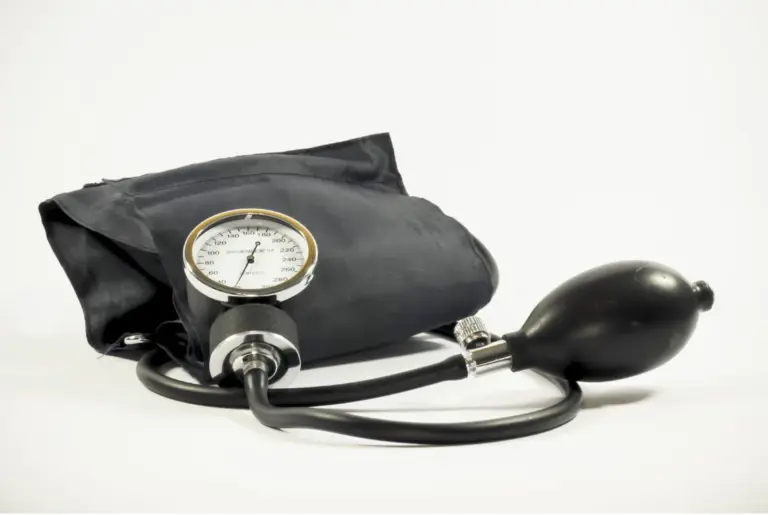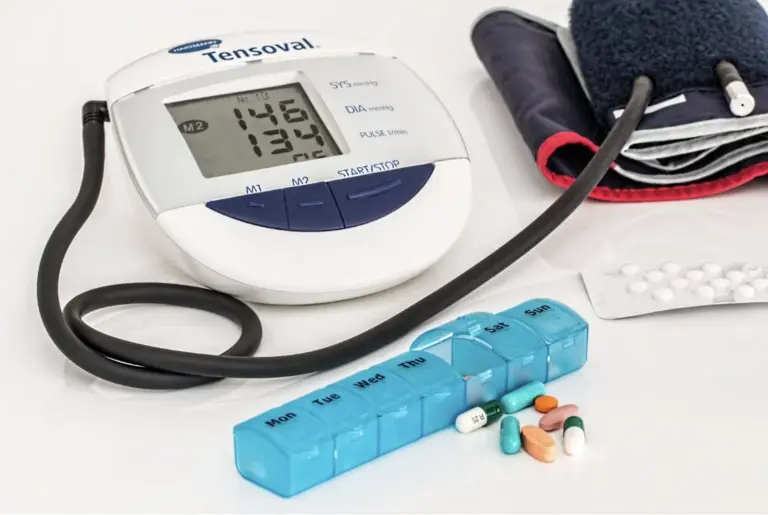High blood pressure, also known as hypertension, is a common condition in which the force of blood pushing against the walls of your arteries is too high. This can damage your arteries over time and increase your risk of heart disease, stroke, kidney disease, and other health problems.
The exact cause of hypertension is unknown, but there are a number of factors that can increase your risk of developing it, including, age, family history, obesity, physical inactivity, medical condition, diet, or unhealthy lifestyle habits.
What Is a “Normal” Blood Pressure Level?
Blood pressure level consists of two numbers: systolic and diastolic.
- Systolic pressure: This is the pressure when your heart beats. It is the higher of the two numbers. When your heart beats, it pumps blood out to the rest of your body. This creates pressure in the arteries.
- Diastolic pressure: This is the pressure when your heart is at rest. It is the lower of the two numbers. When your heart is at rest, it is in the process of filling with blood. This creates a lower pressure in the arteries.
A normal blood pressure level is less than 120/80 mmHg. Anything above this means you may have high blood pressure, also known as hypertension.
What causes high blood pressure?
While the exact cause of hypertension remains unknown, there are various factors that can contribute to its development. These factors, whether occurring independently or in combination with others such as diabetes and hypertension or hypertension & pregnancy can cause high blood pressure. Some of the common causes include:
- Diabetes: High blood sugar levels can contribute to increased blood pressure
- Kidney disease: Impaired kidney function can lead to elevated blood pressure
- Sleep disorders: Conditions like sleep apnea can disrupt breathing patterns and raise blood pressure
- Unhealthy lifestyle: Poor diet, lack of exercise, and smoking can all contribute to high blood pressure
- Obesity: Excess weight puts added strain on the heart and blood vessels, increasing blood pressure
- Stress: Chronic stress can lead to elevated blood pressure levels
- Age: Blood pressure tends to rise as we get older
- Genetics: A family history of high blood pressure can increase your risk
- Family history: If your close relatives have high blood pressure, you may be more prone to developing it as well
- Sodium intake: Consuming too much salt can raise blood pressure levels
- Potassium deficiency: Not getting enough potassium in your diet can impact blood pressure regulation
- Hormonal factors: Imbalances in hormones can affect blood pressure control
- Certain medications and substances: Certain medications and substances have the potential to cause temporary or chronic high blood pressure
- Pregnancy: Some women may experience temporary high blood pressure during pregnancy
- Alcohol consumption: Excessive drinking can contribute to elevated blood pressure levels
- Poor diet: Consuming a diet high in saturated fats, cholesterol, and processed foods can raise blood pressure levels
- Thyroid disorders: Both an underactive (hypothyroidism) and overactive (hyperthyroidism) thyroid can influence blood pressure regulation
- Chronic kidney infections: Repeated kidney infections or kidney damage can contribute to the development of hypertension
- Aortic coarctation: This congenital heart defect narrows the aorta, causing high blood pressure in certain parts of the body
- Illegal steroid use: Anabolic steroids used for non-medical purposes can increase blood pressure levels
Recognizing the role of these various factors and making lifestyle changes can make a significant difference in maintaining healthy blood pressure levels and promoting overall well-being.
In a Nutshell
It’s crucial to remember that tiny changes can have a big impact when it comes to maintaining optimal blood pressure. Adopting a better lifestyle, such as engaging in physical activity regularly, eating healthy and nutritious foods, and properly managing stress, can help lower your blood pressure. Seeking encouragement and guidance from loved ones, joining support groups, or even meeting with a healthcare expert might help you keep on course.
Furthermore, regular monitoring of your blood pressure is essential for early detection and timely intervention. Don’t underestimate the power of routine check-ups and discussions with your doctor. They can offer invaluable insights, and personalized advice, and possibly prescribe medications if necessary. To consult a doctor you can also visit our Find a Physician page, where you can find qualified physicians ready to guide you on the path to blood pressure control. Remember, prevention and proactive management are the cornerstones of maintaining healthy blood pressure.
So, let’s take the reins of your health and embrace the knowledge you’ve gained about the causes and risk factors of high blood pressure to implement positive changes.
Your heart, your mind, and your body will thank you!
Disclaimer
The information contained in this article is to educate, spread awareness in relation to hypertension and other diseases to the public at large. The contents of this article are created and developed by BPinControl.in through its authors, which has necessary, authorisations, license, approvals, permits etc to allow usage of this articles on The Website. The views and opinions expressed in this article are views, opinions of the respective authors and are independently endorsed by doctors. Although great care has been taken in compiling and checking the information in this article, The Website shall not be responsible, or in any way liable for any errors, omissions or inaccuracies in this article whether arising from negligence or otherwise, or for any consequences arising therefrom. The content of this article is not a substitute for any medical advice. The Website shall not be held responsible or liable for any consequence arising out of reliance on the information provided in the article.




